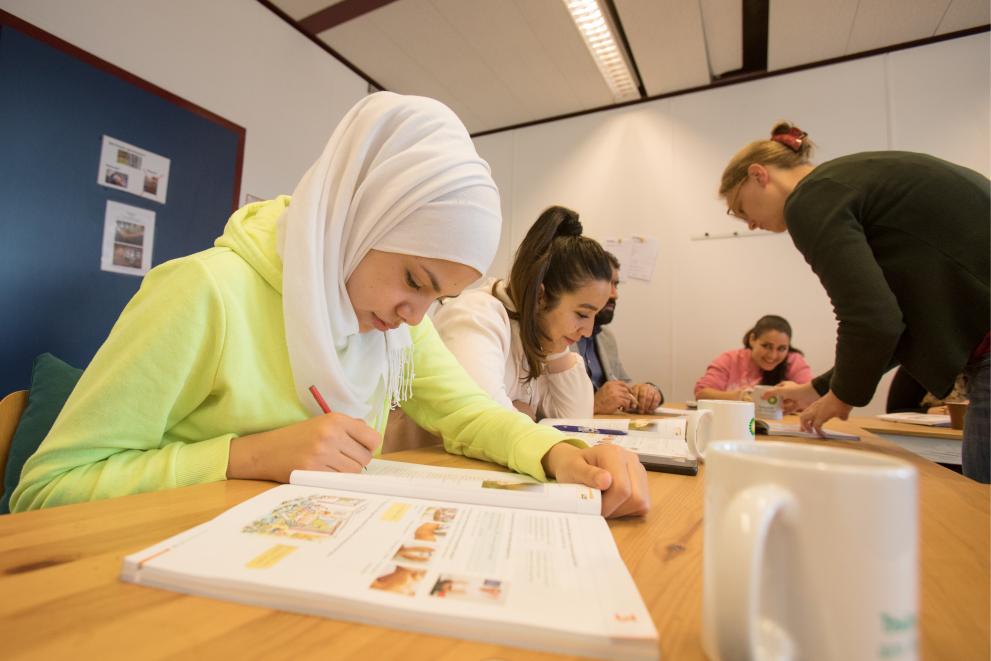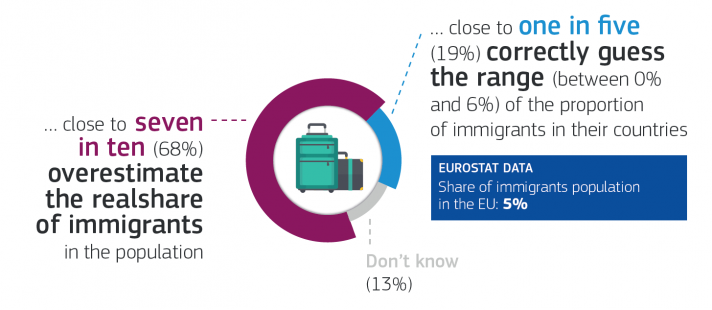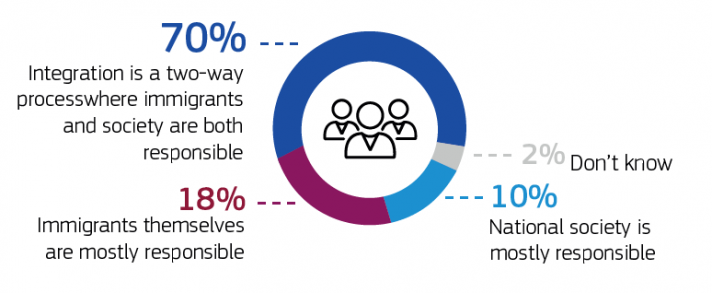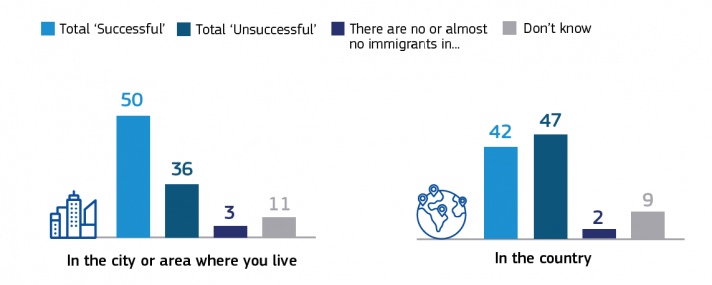
Today, around 5% of the EU’s total population are third country nationals. As people in and outside Europe move for work, family and other reasons, migration is an integral part of Europe’s society. Effective integration polices can help support social cohesion and make sure that third-country nationals are included in the host communities in Europe.
Public opinion on migrant integration
The recent Eurobarometer survey "Integration of Immigrants in the European Union" reveals public opinion on the topic, providing useful insight for integration policy. Between 2 November and 3 December 2021, 26 510 citizens from all of the 27 EU countries responded to questions on:
- general perception and attitudes towards integration of third-country nationals;
- views on the conditions for successful integration and perceptions of the integration process and
- perceptions of EU citizens of the impact of COVID-19 on integration and views on whether integration is prioritised at national level.
Overestimating migrant numbers and low awareness rates
People tend to overestimate the number of third country nationals as a proportion of the population of their country (68%).
Only 38% of Europeans consider themselves well informed about migration and integration. More than half of respondents (56%) receive information on these topics through traditional media (TV, radio, newspapers), while the second largest information source (15%) is social media and networks.
Integration is a two-way process
At the same time, a strong majority of Europeans (70%) view integration as a two-way process, in which both host societies and immigrants play an important role.
Integration at national and at local level
Half of Europeans agree that integration of migrants is successful in their city or local area, while slightly less (42%) think the same about integration in their country.
Just over half of Europeans (53%) agree that their national government is doing enough to promote the integration of migrants into society. A clear majority (69%) of respondents agree that it is necessary for their country to invest in integrating migrants. Moreover, three out of four Europeans (75%) believe that the integration needs of migrants should be taken into account when designing measures to fight the effects of the COVID-19 pandemic.
More information
- Eurobarometer survey, summary and factsheet: Integration of Immigrants in the EU
Details
- Publication date
- 20 June 2022
- Author
- Directorate-General for Migration and Home Affairs



